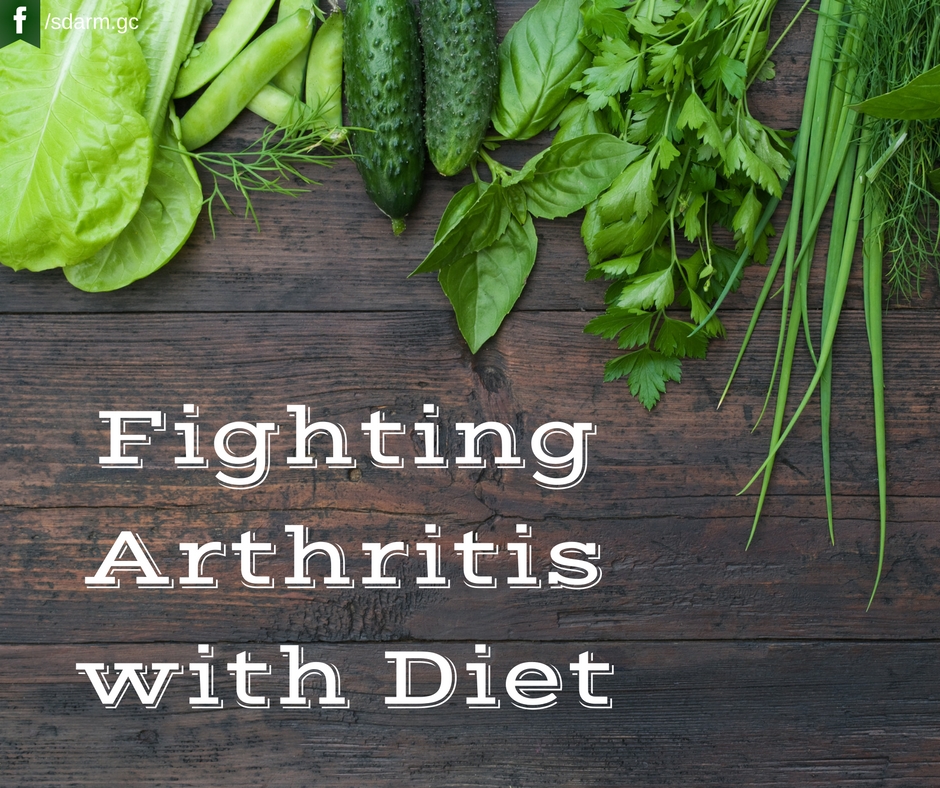
Obtaining effective treatment for arthritis early is important for slowing its progression, reducing the risk of long-term disability, and lowering accompanying health risks. Current medical treatments often rely on drugs that have unpleasant side effects, such as gastrointestinal bleeding and heart disease. Fortunately, we can help prevent, slow down, and ease arthritic symptoms through our diet.
Certain foods trigger inflammatory responses in the body, especially the joints, so making simple food changes can help ease inflammation.
Arachidonic acid is an inflammation-inducing acid contained in many common foods. It is a polyunsaturated Omega 6 fatty acid that is naturally found in the brain, muscles, and liver. Our bodies produce enough arachidonic acid without the need for additional dietary supplementation.
Daily exposure to foods with high levels of arachidonic acid leads to a chronic state of elevated arachidonic acid, resulting in inflammation. Some foods to directly avoid are: refined sugar, dairy, corn/soybean oil, eggs, refined salt, MSG, and alcohol/tobacco.
Sugar:
Refined sugar confuses the immune system so that it cannot differentiate between an invader and its own body, and it attacks its own cells. Sugar in all its forms (cane sugar, high fructose corn syrup) can suppress the system’s ability to attack a true invader (such as bacteria or viruses) up to 2-5 hours after the sugar surge, leaving the body susceptible to infections.
Dairy:
Oftentimes, dairy products are portrayed as the best source of calcium, but adding more calcium to your diet doesn’t automatically guarantee stronger bones and joints. We also need to retain calcium. Dairy products contain high amounts of animal protein that cause acidity, which wears away at bones and worsens arthritic symptoms. Dairy products are also high in saturated fats, lactose sugar, and cholesterol, which are inflammatory in nature. Green leafy vegetables, on the other hand, are high in antioxidants and calcium without the inflammatory side effects.
Omega 6 Fatty Acid:
Omega 3 is largely anti-inflammatory and Omega 6 is inflammatory in nature. Both are equally important for our body and must be absorbed from our diet, as our body does not produce them. Inflammation begins when Omega 6 intake is higher than Omega 3 intake. Food products that are high in Omega 6 are corn and soybean oil, which are used in most conventional processed foods. Healthier options for obtaining Omega 3 and 6 in appropriate amounts are flax seeds, hemp seeds, chia, cruciferous and green vegetables, pumpkin seeds, walnuts, and raw sunflower seeds.
Eggs:
Egg yolks contain high amounts of animal fats and cholesterol, which worsen inflammation for those with arthritis. Egg yolks are also high in arachidonic acid.
Gluten:
Gluten contains a form of protein called Gliadin that permeates the intestinal wall and can cause leaky gut syndrome. Leaky gut means that the gut membrane is weakened and toxins leak into the blood stream and introduce inflammations.
Refined Salt/ MSG:
Refined salt has multiple additives and chemicals that cause inflammation in the bone. MSG is another type of salt often used in packaged and restaurant foods. Many spice mixes contain MSG or one of its derivatives: Hydrolysed vegetable plant protein, plant protein extract, or yeast extract. These exacerbate all inflammatory conditions including different forms of arthritis.
Tobacco:
The foreign toxins in tobacco excite the immune system to attack the joints. Of all the aggravators mentioned above, smoking is by far the worst for developing arthritis. Studies show that tobacco-using women with rheumatoid arthritis manifest worse symptoms and pain than light smokers and non-smokers.
Inflammation is the body’s natural response to something foreign or destructive. Inflammation can be caused by an infection, such as in response to a fever. This is a temporary response and is a good kind of inflammation because it helps your body get rid of the infection. But when inflammation becomes chronic, it no longer protects, rather it destroys and causes chronic diseases such as heart disease, diabetes, atherosclerosis, and osteoarthritis. Thankfully, avoiding exposures to triggers and modulating inflammatory mediators through diet can reduce and eliminate inflammation.